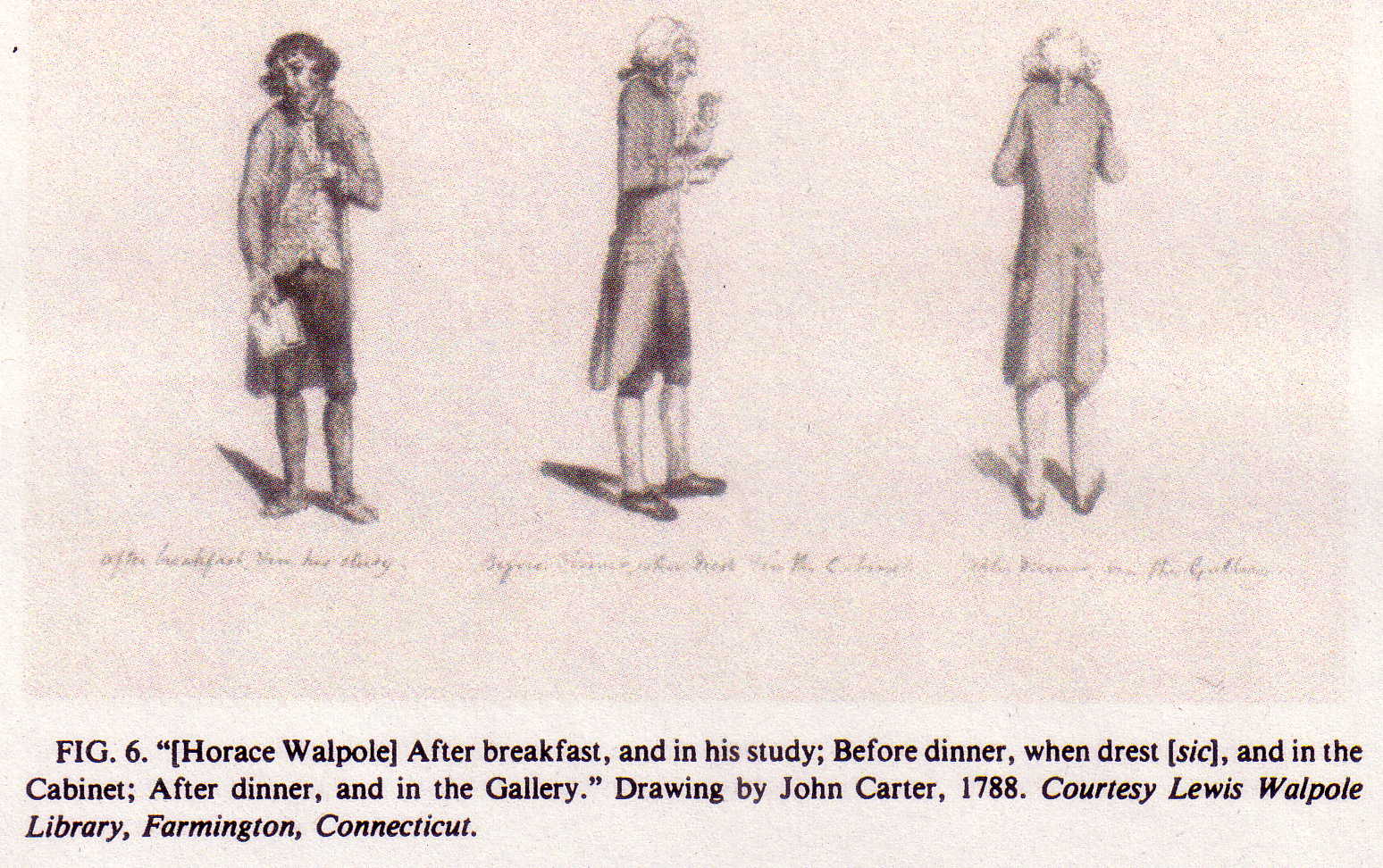Introduction
‘Serendipity’ word was coined by Horatio (better known as Horace) Walpole (1717-1797), in a January 28th 1754 letter to Horace Mann, then residing in Florence, Italy. Eighty years ago, in his presidential address delivered before the 36th annual meeting of the Society of American Bacteriologists on December 28, 1934, Milton Rosenau (1871-1940; then affiliated to the Harvard Medical School) brought up the two relevant sentences (122 words long!) of Walpole’s letter in which this word was introduced. Walpole had written,
“This discovery, indeed, is almost of that kind which I call serendipity, a very expressive word, which, as I have nothing better to tell you, I shall endeavor to explain to you: you will understand it better by the derivation than by the definition. I once read a silly fairy tale, called ‘The Princes of Serendip’; and as their Highnesses travelled, they were always making discoveries, by accidents and sagacity, of things which they were not in quest of: for instance, one of them discovered that a mule blind of the right eye had travelled the same road lately, because the grass was eaten only on the left side, where it was worse than on the right – now do you understand Serendipity?”
This relates to Walpole receiving a Giorgio Vasari portrait of Duchess Capello from Horace Mann. Serendip was an ancient name for Ceylon, attributed to Arab mariners. But, as one could gather from the above citation, Walpole didn’t offer an etymological derivation for this word in his 1754 letter. The earliest etymological derivation for ‘serendipity’ that I could locate was that of Dickson in the Encyclopedia Britannica in 1876. It may delight Walpole that in Gifu City (where I live), there is even a “creative beauty salon” for women, having the name ‘Serendipity’! A scan of its promotional bill is presented nearby.
About Horace Walpole
Horace Walpole was the youngest son of Sir Robert Walpole (1676-1745), who served as the British prime minister during the reigns of Kings George I and George II. Horace’s literary reputation was as a chatty, letter-writing chronicler to pals, among whom Horace Mann was one. One interesting study on the last illnesses of both father and son was published by Arthur Viseltear in 1983. I have scanned a 1788 sketching of son Walpole by John Carter, which appeared in Viseltear’s study.
‘Serendipity’ in Wikipedia dictionary
‘Serendipity’ was introduced as an item of interest in Wikipedia dictionary by Malcolm Farmer on May 10, 2001. As of now (Jan.28, 2014), according to the statistics tabulated by the Wikipedia’s number crunchers, 1,285 revisions had been made to this entry! This partly shows, that the word has gained popularity status; and everyone has his or her independent thoughts on this word, akin to that of ‘sex’. So, here are my thoughts about it.
My Study on the prevalence of ‘Serendipity’ word
I checked English language dictionaries available in my university library, andpublished between 1755 and 2004 to see, how the word ‘serendipity’ entered the English lexicon, especially pertaining to its etymology. Here is a summary of my study.
First, neither Samuel Johnson’s dictionary (published in 1755), nor Noah Webster’s dictionary (published in 1828) included the serendipity word in them.
Secondly, it also did not appear in Rev. Walter Skeat’s etymological dictionaries published in 1881 and 1882. This fact is confirmed by the Oxford English Dictionary that the second time use of the word appears only in 1880 by E. Solly in his work Index Titles of Honour (1880).
Thirdly, all dictionaries which appeared in the 20th century that I checked do include ‘serendipity’ in their contents.
Fourthly, three common themes stated under serendipity word were, (1) It was coined by English author Horace Walpole in a letter to Horace Mann in January 1754, (2) It was derived from the title of a fairy tale, ‘The Three Princes of Serendip’, and (3) Serendip is the ancient name for Sri Lanka (previously known as Ceylon).
Fifthly, it is wrong to assume that English lexicographers are fluent in languages of India; like in any other academic disciplines, plagiarism among lexicographers seems rampant!
As per the etymological origin of Serendip, the Encyclopedia Britannica provides the following description.
“Serendib, also spelled Serendip, Arabic SARANDIB, Arabic name for the island of Ceylon, recorded in use at least as early as 361, which for a time gained considerable currency in the West. It is best known to speakers of English through the word, serendipity, invented in the 18th century by Horace Walpole on the inspiration of a Persian fairy tale, ‘The Three Princes of Serendip’, the heroes of which often made fortuitous discoveries. No longer used. ‘Serendib’ is a corruption of the Sanskrit compound Simhaladvipa (Dwelling-Place-of-Lion’s Island).”
Leo Goodman challenged the derivation of serendip from Simhala-dvipa (Sanskrit word for Ceylon) in 1961. According to him, “the Sanskrit suvarna-dvipa and the Hindustani sunahra-dip mean ‘golden-isle’ (the Persian zarin means ‘golden’), so that the original form of Serendip, which is related to Sarandip, a Hindustani name for Ceylon, probably referred to the ‘golden-isle’ and/or to the fact, according to the chronicles, a city of gold was built there. Thus, Serendip is probably a ‘corruption’ of a word referring to the ‘golden-isle.’ ”
One can also etymologically derive ‘serendipity’ word is from Tamil language. Two Tamil words, Cheran (one of the three tribes of ancient Tamils, currently residing in Kerala state, which was historically known as the land of Cheras) + tivu (island) should have combined to form the word Cheran+tivu. This derivation was originally proposed by Samuel Livingstone (pen name of a Sri Lankan Tamil historian). In a little known book published in 1971 (about which I had previously written in this website in 2011), he wrote the following:
“People who came to Ceylon from Malabar or via Malabar, as the Moorish traders, would have naturally called Ceylon Serendib (Tamil: Serendivu), the island of the Cheras. The Chera kingdom, comprising at that time the present Travancore, Cochin, the land bordering the Western Ghats in the North and even the area up to Cape Comorin in the South, was at the zenith of its power for a very long time, even after the arrival of the so-called Arab merchants, who, by the way, were not Arab-speaking people, but Tamil-speaking people converted to Islam during their sojourns in Arabia and the Persian Gulf for purposes of trade.”
Livingstone also makes another valid point; “The term ‘Arab’ was used for the first time by the Portuguese, when they came to Ceylon in the middle of the 16th century. They naturally mistook these Dravidian sailors for Arabs, in view of the religion they professed, but without any consideration for the language they spoke.” In fact, the chronology offered in the Oxford English Dictionary indicates that the word ‘Arab’ appeared in English only in 1634; merely 120 years before Walpole coined the ‘serendipity’ word.
Livingstone did reveal his classical background, by citing an apt Latin verse from Quintus Horatius Flaccus aka Horace (65 – 8 BC) from Odes and Epodes book I, no. XII
‘Ille seu Parthos Latio imminentis
Egerit iusto domitos triumpho,
Sive subiectos Orientis orae
Seras et Indos,’ (line 53-56).
In these four lines Latin words such as, Parthos (= the Bharathas, ancient name of India), Orientis (=the East), Seras (= the Cheras) and Indos (=India) indicate the historical link Rome had to India and the Cheras, who commanded the trade route in the Arabian and the Red Seas, during the reign of Augustus Caesar.
Cited Sources
Anon, Serendib, In: The New Encyclopedia Britannica Micropedia vol. IX, 15th edition, Encyclopedia Britannica Inc., Chicago, 1980, p. 67.
Dickson, J.F., Ceylon, In: Encyclopedia Britannica, vol. V, 9th edition, Adam & Charles Black, Edinburgh, 1876, pp.359-370.
Goodman, L.A., Notes on the etymology of serendipity and some related philological observations. Modern Language Notes, 1961; 76: 454-457.
Johnson, S., A Dictionary of the English Language, in two volumes, London. 1755. Facsimile print in 1968, George Olm Verlagsbuch handlung, Hildesheim.
Livingstone, S., The Sinhalese of Ceylon and the Aryan Theory: Letters of a Tamil father to his son, Mortlake Press, Colombo, 1971, p. 13.
Rosenau, M.J., Serendipity. Journal of Bacteriology, 1935; 29: 91-98.
Simpson, J.A., and Weiner, E.S.C., The Oxford English Dictionary, 2nd edition, vol. XV, Clarendon Press, Oxford, 1989, p.5.
Skeat, W.W., An Etymological Dictionary of the English Language, Clarendon Press, Oxford, 1881. New edition, revised and enlarged 1978.
Skeat, W.W., A Concise Etymological Dictionary of the English Language, Clarendon Press, Oxford, 1882. impression of 1948.
Viseltear, A, J., The last illnesses of Robert and Horace Walpole. Yale Journal of Biology and Medicine, 1983; 56: 132-152.
Webster, N., An American Dictionary of the English Language, in two volumes, S. Converse, New York, 1828. Reprint 1970, Johnson Reprint Corporation, New York.
